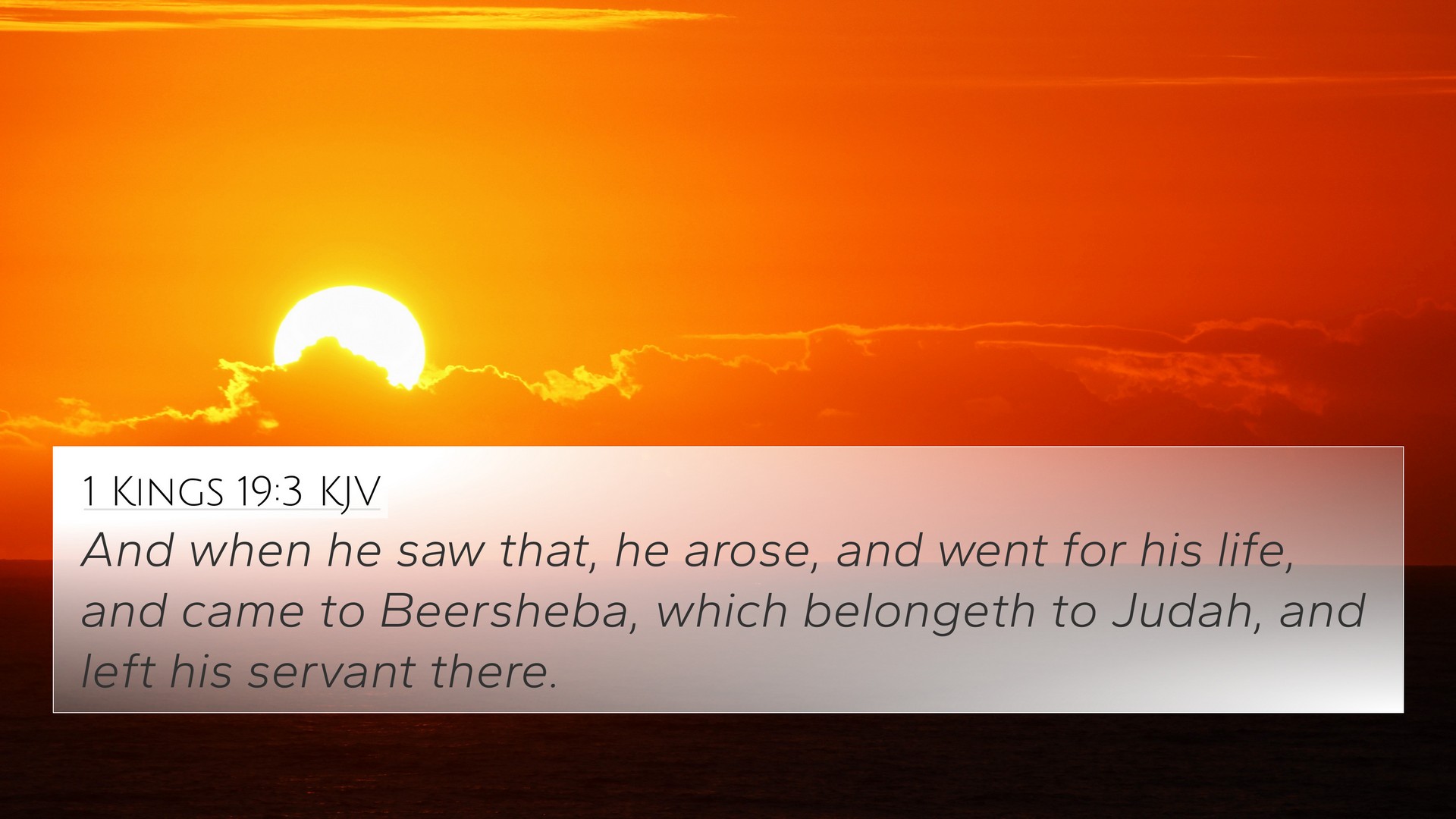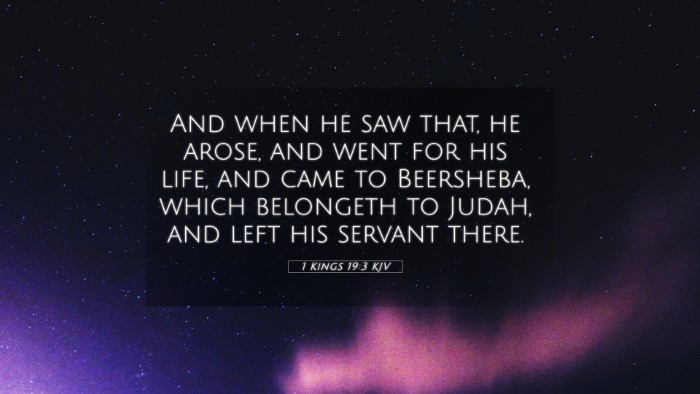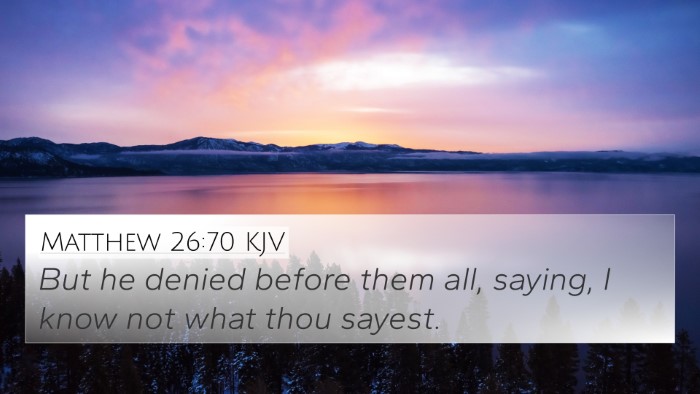Old Testament
Genesis Exodus Leviticus Numbers Deuteronomy Joshua Judges Ruth 1 Samuel 2 Samuel 1 Kings 2 Kings 1 Chronicles 2 Chronicles Ezra Nehemiah Esther Job Psalms Proverbs Ecclesiastes Song of Solomon Isaiah Jeremiah Lamentations Ezekiel Daniel Hosea Joel Amos Obadiah Jonah Micah Nahum Habakkuk Zephaniah Haggai Zechariah Malachi1 Kings 19:3 Similar Verses
1 Kings 19:3 Cross References
And when he saw that, he arose, and went for his life, and came to Beersheba, which belongeth to Judah, and left his servant there.
Uncover the Rich Themes and Topics of This Bible Verse
Listed below are the Bible themes associated with 1 Kings 19:3. We invite you to explore each theme to gain deeper insights into the Scriptures.
1 Kings 19:3 Cross Reference Verses
This section features a detailed cross-reference designed to enrich your understanding of the Scriptures. Below, you will find carefully selected verses that echo the themes and teachings related to 1 Kings 19:3 KJV. Click on any image to explore detailed analyses of related Bible verses and uncover deeper theological insights.

Genesis 21:31 (KJV) »
Wherefore he called that place Beersheba; because there they sware both of them.
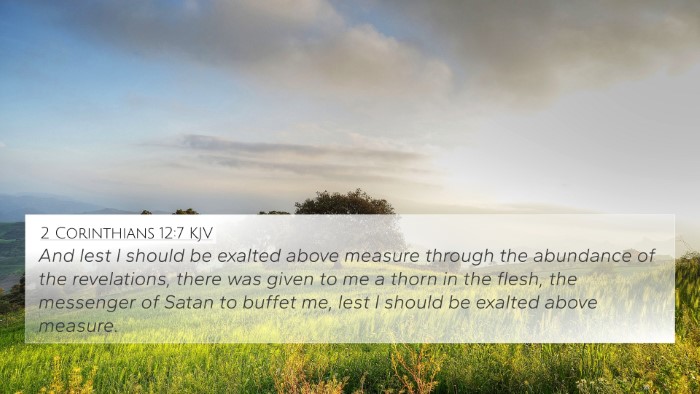
2 Corinthians 12:7 (KJV) »
And lest I should be exalted above measure through the abundance of the revelations, there was given to me a thorn in the flesh, the messenger of Satan to buffet me, lest I should be exalted above measure.
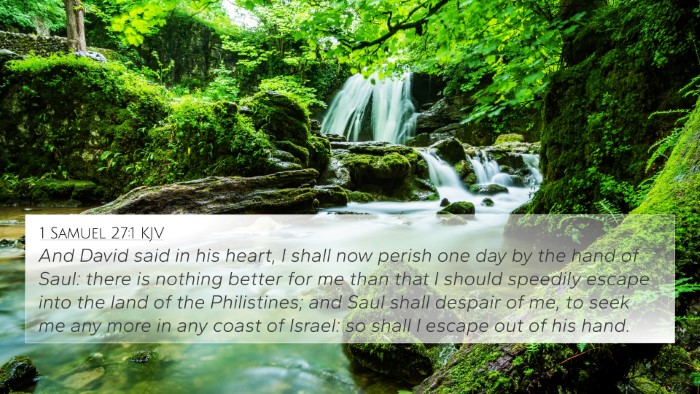
1 Samuel 27:1 (KJV) »
And David said in his heart, I shall now perish one day by the hand of Saul: there is nothing better for me than that I should speedily escape into the land of the Philistines; and Saul shall despair of me, to seek me any more in any coast of Israel: so shall I escape out of his hand.
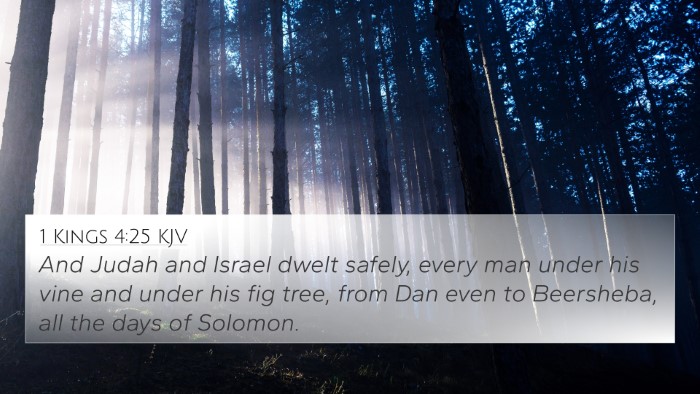
1 Kings 4:25 (KJV) »
And Judah and Israel dwelt safely, every man under his vine and under his fig tree, from Dan even to Beersheba, all the days of Solomon.
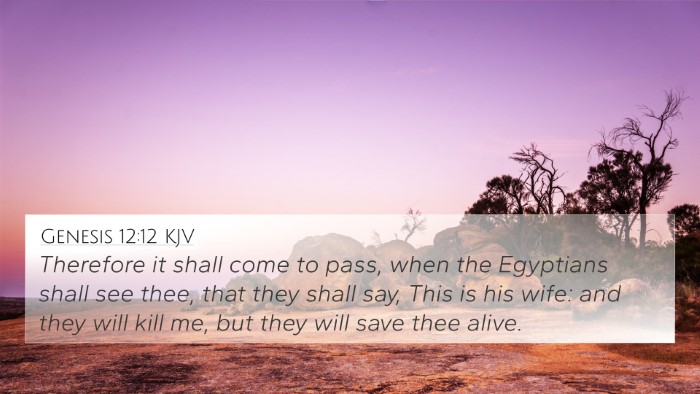
Genesis 12:12 (KJV) »
Therefore it shall come to pass, when the Egyptians shall see thee, that they shall say, This is his wife: and they will kill me, but they will save thee alive.
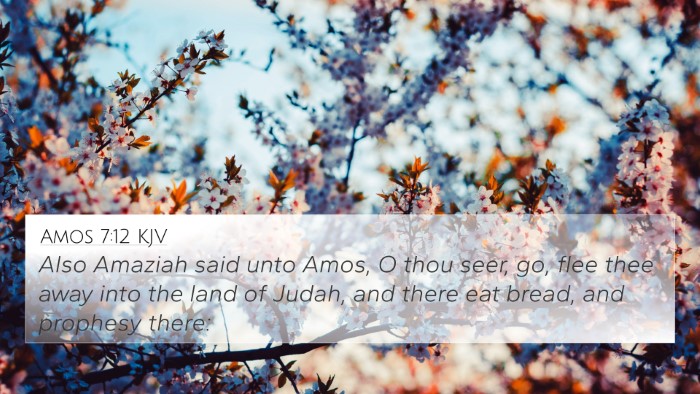
Amos 7:12 (KJV) »
Also Amaziah said unto Amos, O thou seer, go, flee thee away into the land of Judah, and there eat bread, and prophesy there:
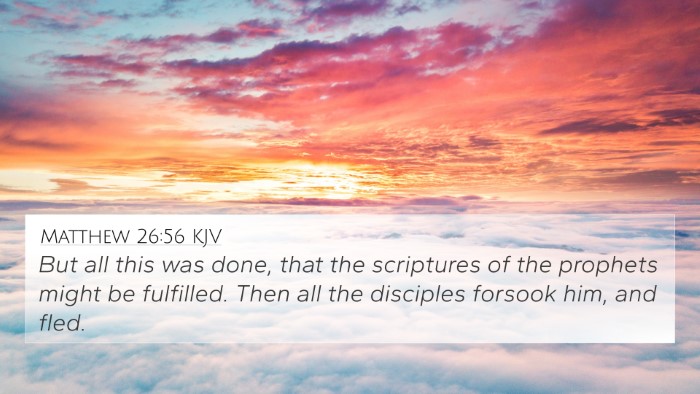
Matthew 26:56 (KJV) »
But all this was done, that the scriptures of the prophets might be fulfilled. Then all the disciples forsook him, and fled.
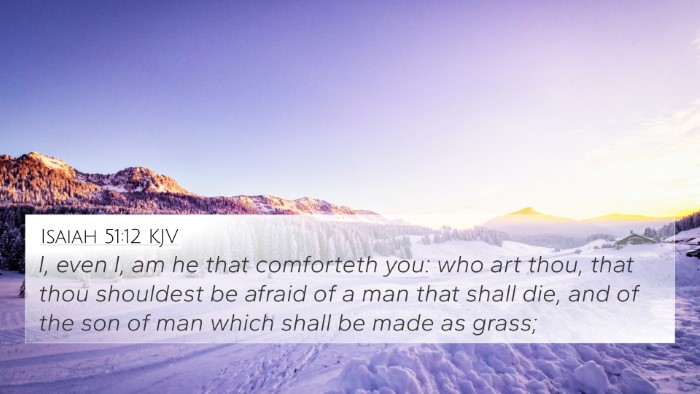
Isaiah 51:12 (KJV) »
I, even I, am he that comforteth you: who art thou, that thou shouldest be afraid of a man that shall die, and of the son of man which shall be made as grass;
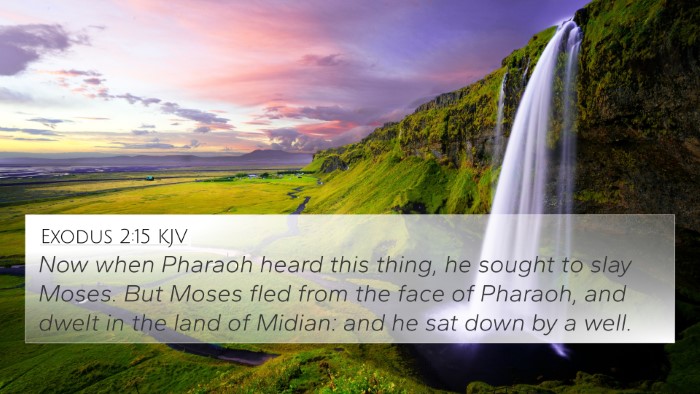
Exodus 2:15 (KJV) »
Now when Pharaoh heard this thing, he sought to slay Moses. But Moses fled from the face of Pharaoh, and dwelt in the land of Midian: and he sat down by a well.
1 Kings 19:3 Verse Analysis and Similar Verses
Understanding 1 Kings 19:3
Bible Verse: 1 Kings 19:3 - "And when he saw that, he arose, and went for his life; and came to Beer-sheba, which belongeth to Judah, and left his servant there."
Context and Background
This passage encapsulates a significant moment in the life of the prophet Elijah. After a great victory over the prophets of Baal on Mount Carmel, Elijah is threatened by Queen Jezebel. In fear for his life, he flees to Beer-sheba, indicating a moment of deep despair and the struggles faced by even the most faithful servants of God.
Verse Analysis
Elijah's reaction to Jezebel's threat highlights his humanity. Despite having witnessed miraculous acts of God, he succumbs to fear and runs away. This reflects the themes of fear, despair, and the need for divine reassurance.
Key Themes
- Human Fear: Even a prophet can succumb to fear, reminding us of our vulnerabilities.
- Divine Provision: Elijah’s journey leads to divine encounters that restore him.
- Isolation vs. Community: Elijah leaves his servant behind, symbolizing moments of isolation during adversity.
Cross-References
1 Kings 19:3 can be cross-referenced with several other Bible verses, which help in understanding the broader narrative and theological implications:
- Psalm 55:4-5: Reflects sudden fear like that experienced by Elijah.
- James 5:17: Acknowledges Elijah's humanity and the power of prayer.
- 1 Kings 18:16-46: Connects to Elijah's previous triumph and subsequent despair.
- Matthew 26:56: Illustrates how even the apostles faltered in times of fear.
- Isaiah 41:10: God’s reassurance against fear serves to strengthen believers.
- Luke 22:31-32: The theme of support and prayers in times of trials.
- Hebrews 12:1-2: Encourages believers to endure and focus on Jesus amidst challenges.
Commentary Insights
Combining insights from notable public domain commentaries:
- Matthew Henry: Emphasizes Elijah's weakness and God’s grace. He points out how even great men of God may falter, yet God remains faithful.
- Albert Barnes: Highlights the emotional turmoil of Elijah and the lesson of retreat as a cry for help. Barnes notes the importance of acknowledging one’s support system during crises.
- Adam Clarke: Points to the geographical significance of Beer-sheba as a place of refuge, symbolizing a flight from danger. He also comments on the spiritual need for solitude before restoration.
Thematic Connections
Exploring thematic connections between scripture provides a richer understanding of biblical narratives:
- Isolation and Community: Many biblical figures, like David (1 Samuel 30:6), also faced despair yet found strength in community.
- Divine Presence: Similar to Moses’ flight to Midian (Exodus 2:15) in fear and divine intervention leading to his calling.
- Restoration: The restoration of Peter after his denials (John 21:15-17) mirrors God’s faithfulness to restore His servants.
Practical Applications
1 Kings 19:3 resonates with many contemporary issues, advising believers on emotional transparency and the significance of support in community:
- Addressing Fear: Believers should recognize fear as a human emotion, essential to bring before God.
- The Importance of Support: Just as Elijah had a servant, community support is vital for spiritual health.
- Seeking God’s Presence: In times of retreat, individuals should focus on seeking God’s reassurance and presence.
Conclusion
1 Kings 19:3 serves as a reminder of the human condition, showing that even the most faithful prophets experience doubt and fear. Through cross-referencing this verse with others, we gain a fuller understanding of the biblical narrative regarding faith, fear, and God's unwavering support. The subsequent journey of restoration for Elijah exemplifies God’s faithfulness even in despair.
SEO Keywords Utilization: This exploration utilized keywords such as Bible verse cross-references, Bible verses that relate to each other, and cross-referencing Bible study methods, which offer tools for deeper scriptural analysis.
